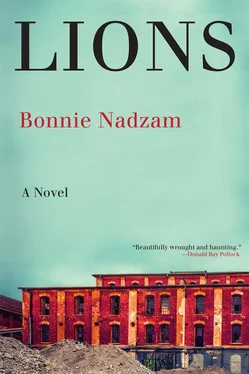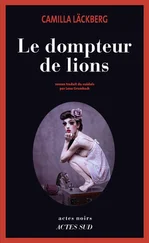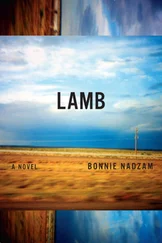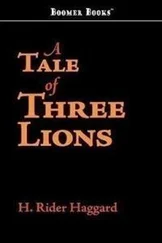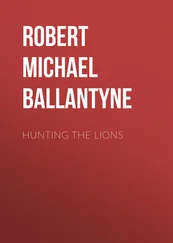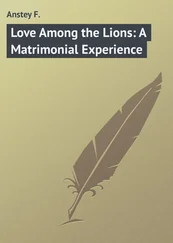He stopped next to the frame of a rusted old tomato-red Bronco someone had dropped off for Gordon or John to clean up and repair, but had never returned to claim. A hundred feet from the house was the Walkers’ shop, its windows open to the narrow county road where the Gas & Grocer had stood sixty-one years, and next door to that, May and Leigh Ransom’s little place.
It was just barely twilight. The man stooped and scratched the dog behind the ears and spoke to her, looking out over what he could see of town. From the slight inclination of the plain, it must have appeared a shipwreck awash in grass — the old splintered homesteads half sunk in dirt, the small crush of lights in the distance from the diner and the bar where anyone still surviving had gathered together to ride out the coming night.
He circled around the Walkers’ weld shop — a combination pole barn and Quonset hut surrounded by neat piles of scrap metal and corrugated steel. It was filled with pretty fine machinery and tools for repairing broken farm equipment and assembling hog fencing. In various forms, the shop belonged to John Walker, his father, William, grandfather Charles, and another two Johns, before them, the first opening his doors primarily as a wheelwright in the nineteenth century right around the time Lions was founded. So did Gordon’s paternal grandfathers reach back in the history of the county as agricultural equipment innovators and repairmen. They had never been cowboys, they had never been hunters or trappers, they had never been traders or soldiers, and they had never been farmers — not even in the days when it seemed every man west of the 90th meridian was some combination of them all. They had long been the only metalworkers in the region, as far back as living memory went, and always with expertise far beyond the meager needs of the county.
John Walker in particular was a masterful and efficient welder, with skill in proportion to his oddness. If there was a wildfire in the foothills or in the mountains, he knew it first. If it was going to rain in a day’s time, he had already tacked down the tarps over the hay at Dock Sterling’s place, before Dock himself could see to it. His neighbors mistook for queer perspicacity what was in fact great attention, and what his wife called serious love.
The Walkers were strange like that, they said. Hard to figure.
But good guys. Reliable.
Heck. John’d do anything for you.
They’d all raise their glasses to that.
But no common sense, they agreed, and the men shook their heads. The women — heavy around the middle, slender gold crosses around their necks, and hair colored from boxes of dye they bought at the grocery store in Burnsville — all looked away, out the window to the empty street and storefronts that made up the single block of downtown. The mute television hanging over the bar flashed a commercial for car insurance.
As if the man had no interest in money, someone said.
They were all like that, someone said. All the Walkers.
For example, decades before it was common practice, Gordon’s great-grandfather fashioned a manner of swather out of scrap. It cut the grain and laid it on the ground in windrows, allowing it to dry before harvest. It was by this invention that Lions finally for a brief uncharacteristically rainy decade seemed to promise a little prosperity. This great-grandfather Charles never thought of patenting the swather, however, so never profited by it in any worldly sense. He’d bent over the metal with some design in mind, to help a neighbor who was a distant cousin on his wife’s side, and considered a more efficient harvest payment enough. Sons and daughters of those neighboring farmers whom he helped accumulate a little wealth soon moved on to Denver, Salt Lake, Phoenix, and San Diego, where their great-grandsons and — granddaughters now live in flat-faced stucco houses on smooth, curved streets that you will discover, if you are a careful student of cartography, loop into the interstates and highways in broad, swooping, endless circles.
If what this New World offered was boundless opportunity for material wealth — reward for ambition and grit — then it really was a mystery why any of the Walkers came to the continent in the first place. Of course there may have been some exchange of perishable goods for the rudimentary swather: a season’s worth of fresh eggs, or clay jars of alfalfa honey, or plums or cherries, which every few summers grew with an abundance the early farmers could neither predict nor control, and which were otherwise impossible to come by. Some things — carrots, potatoes, turnips — you could keep in ten-gallon buckets of cold sand in a dirt cellar straight through the winter, but fresh fruit was rare. Gordon’s grandmother, if left alone for an afternoon, might be discovered beneath the warty hackberry tree, her kitchen work and laundry left undone, indolently eating a lapful of plums, one after another, sticky pink juice running down her chin and neck and wrists and forearms, flyaway dark hair standing out in a frayed and sweaty halo around her face.
Look, she would say, I love these plums. And love is never idle.
The Walkers’ was the first house the man on the highway would have seen when he dipped down onto the frontage road at the exit to town. Perhaps it was only because of this that he felt welcomed by the small, tidy home and crossed the weeds and clipped grass to the back door.
Perhaps it was that simple.
Georgianna Walker was ready for him with a mug of hot black coffee. Her long, gray hair was parted in the middle and pinned up behind her ears in tin barrettes, her face scrubbed clean.
“All out of change,” the man said, putting his hands up.
“Please.” She extended the cup to the stranger, and when he took it, she ushered him inside and pulled out a kitchen chair. “You’re just in time for dinner. Scrambled eggs, buttered toast, and cocoa sound good?”
He checked her face and she nodded and smiled. He sat down. “Almost a warm spring night,” he said.
“We’re getting there. Couple weeks it’ll be hotter than we can stand.”
“That’s a good-looking dog,” John Walker said coming out of the living room, grinning, his finger holding the place in a paperback. “What’s its name?”
The man looked across the room at him. “That’s my Sadie.”
“Come a long way together?”
“All the way together.”
“Will she eat eggs?”
“We’d both eat eggs.”
John set the paperback open, facedown, on a shelf beside the pantry door.
“Good story?” the man asked.
John smiled. “Old cowboy book my dad used to read.” He picked it back up and turned the cover to show the visitor. It featured a man on horseback in a long yellow linen duster. The horse was black with a fiery red eye, and rearing on its back legs. In the distance, a snake behind a sage bush, and a woman in a turquoise dress pouring off her shoulders like water.
Both men laughed.
“I don’t know that one,” the man said.
John had a hundred more with covers just like it: a bearded man crouched in a mountain stream and panning for gold, an outlaw with a red bandanna tied over his face and a pistol in hand, creeping up from behind; a shoot-out in a dusty street; a magnificent cowboy on horseback draped in curtains of blue snow, long ribbons of the dark and wild mane of his dark and wild horse whipping sideways in a glacial wind.
Georgianna took out the eggs, milk, and bread, while John led the man upstairs to the shower and found him an old pair of coveralls carefully patched with scrap denim. Dressed in the borrowed clothes while the washing machine churned his dirty ones — Georgianna had given him no choice in the matter — the man sat back in his kitchen chair. Neither John nor Georgianna asked anything of him, not his name and not a story, nor did the man offer anything.
Читать дальше
